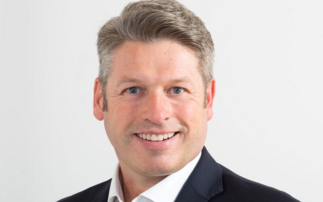The regulator is looking to accelerate the consolidation of pension schemes. David Fairs explains why.
We want to accelerate the consolidation of pension schemes. Why? Because many smaller schemes are simply not good enough.
Trustees are either asleep at the wheel or not taking their responsibilities seriously and as a result the governance of some schemes is, frankly, breaching the law.
Bad governance means savers will have less money in their pots for retirement. Is that fair? No.
The majority of trustees do a good job, but the system isn't working for everyone and we can't sit back and let trustees who fail in their duties carry on this way. Savers rely on pensions in their retirement and being in a poorly run scheme will impact on the standard of living they expect.
If you look at the 32,000 smaller schemes in the UK, there are only 200,000 people in them, whereas there are nearly 14 million people in all of the master trusts. If you're a member of a big master trust you expect your pension to be well looked after and well regulated. Just because you're in a scheme that only has 75 members, does that mean you have fewer rights, or you deserve less protection? I don't think that's true.
Too many trustees of small schemes aren't doing a good enough job. Reassuringly, the vast majority of savers are in well run schemes. But we've seen that both the governance, as well as controls, in smaller schemes are not where they should be.
Research we did last year showed governance in small defined benefit (DB) and defined contribution (DC) schemes tended to be poor. Interestingly, subsequent research we carried out says that the trustees of these schemes think that they're doing a good job. They put a high value on the fact that they may know the members personally and therefore they can provide that recognition and familiarity.
Those trustees have to take a step back and ask if that's actually what members value, and do they value it to the extent that they're paying more in charges than they should be, and that their funds aren't necessarily being invested in the best way that they can be.
It won't be a surprise to hear therefore that we believe trustees of small schemes should be seriously considering if savers in their schemes would get better value in a bigger scheme which benefits from economies of scale. We've been saying it for a while and soon there will be a market of authorised master trusts for trustees of DC schemes to transfer savers into.
Reaching disengaged trustees is really challenging because when we send them emails many of them delete them without even reading them. So that's a huge challenge and we are finding different avenues to reach those people.
TPR's new approach
To date, some trustees have just been letting the scheme trundle along. It hasn't given them a problem, so why change it? But we have to make life more uncomfortable for the people who sit there in blissful ignorance, not doing the right things.
Our new direct communications to schemes - what we are calling regulatory interventions - will challenge those trustees.
We are asking quite specific questions about particular elements of running a scheme that might be indicators of poor governance, so we'll very quickly be able to tell those small schemes where governance is not good.
That may for the first time be a little bit painful for those trustees where they start to get fined for breaches of regulation. But over time we hope they understand they are not running their schemes to the right standards of governance, they are infringing law or regulations and there will be consequences to doing that.
By agitating that group we hope they will sit up and think about their pension scheme. They might think it's fit for purpose, but we think there are probably fundamental flaws.
We have got a duty to be fair but at the end of the day we are a regulator, we are here to make sure people follow the rules and regulations. Savers in those schemes would expect us in the long run to be looking after their best interests, that's what we're here to do.
I don't think anyone could argue that our ambition is unreasonable - we want all savers to be in well run schemes. And consolidation of underperforming schemes will help us to achieve that.
David Fairs is executive director of regulatory policy, analysis and advice at The Pensions Regulator
This blog was originally published on The Pensions Regulator's website






